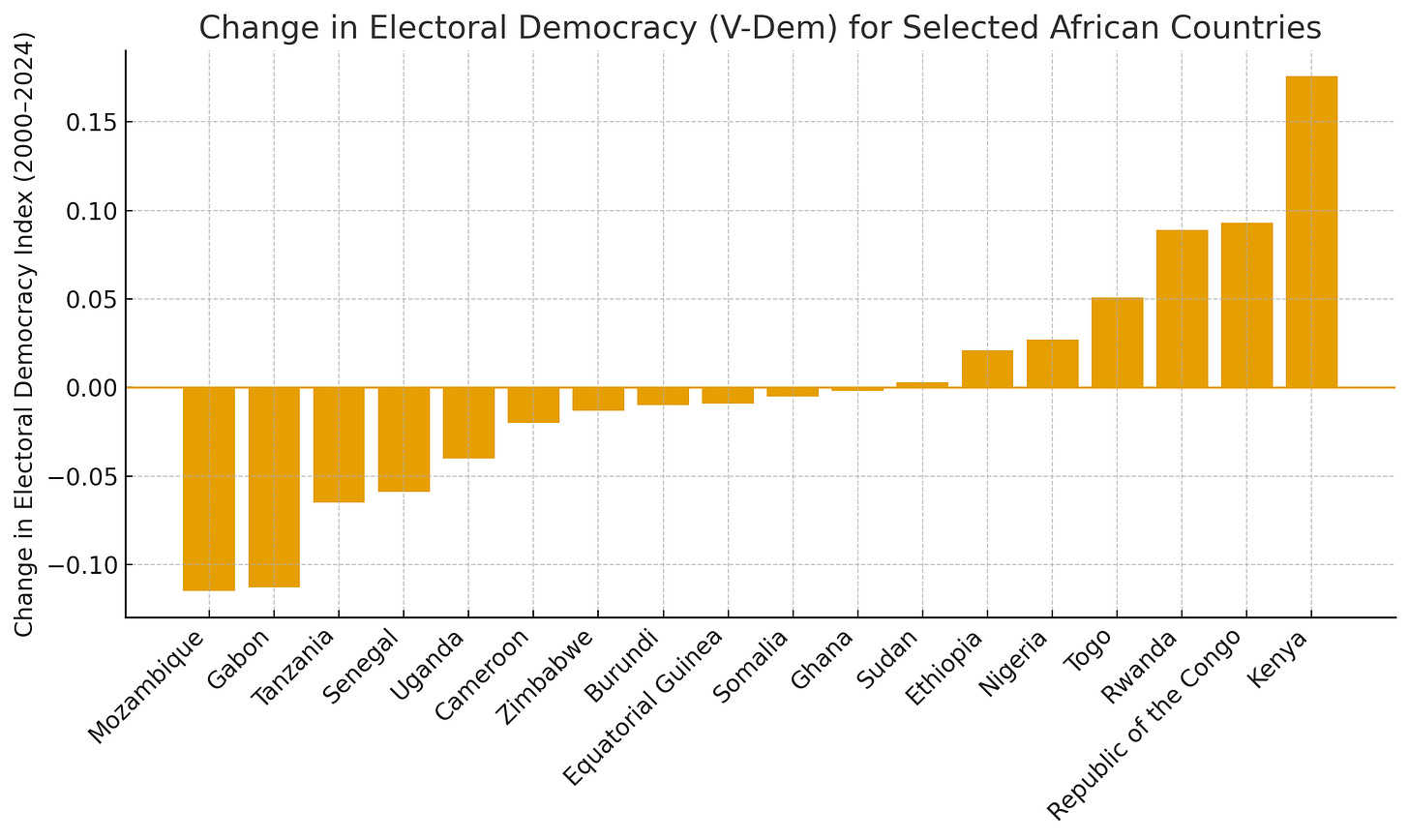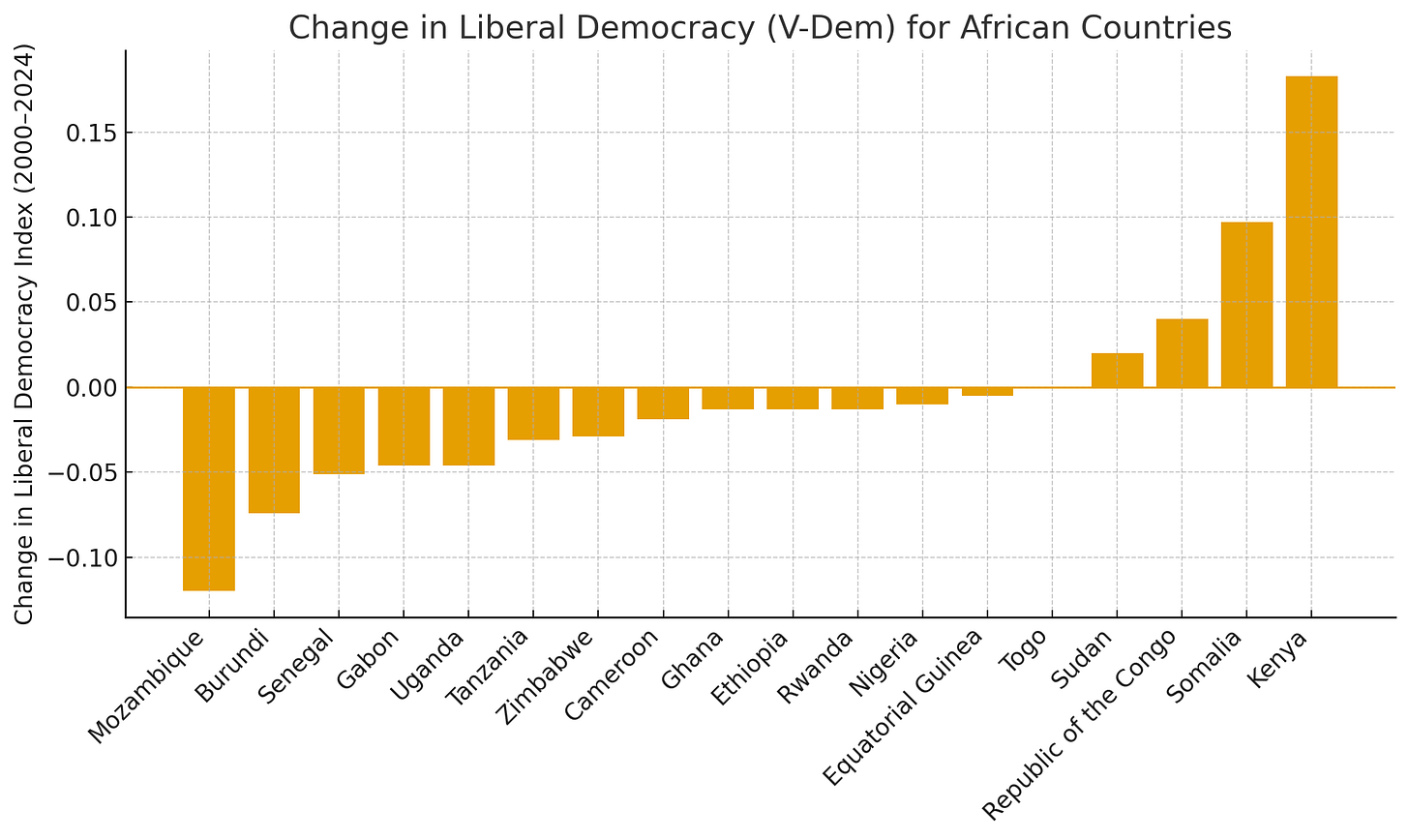Flashpoints & Frameworks: Political Challenges and Institutional Decay in Africa
Regional Analytic Report and Global Security Monitor Nov-2025
Summary
This report examines political challenges and institutional decay across a diverse set of African states, arguing that the central trend is not a simple shift from democracy to dictatorship but a deeper reprogramming of institutions for regime survival rather than accountability. Elections, courts, security services, and civil society are still present in formal terms, yet in many countries they function as instruments of control, patronage, and risk management for ruling elites.

The analysis groups countries into several overlapping regime families. Hard electoral authoritarian and petro clientelist systems such as Cameroon, Equatorial Guinea, Djibouti, Congo Brazzaville, Gabon, Zimbabwe, Togo, and Uganda are characterized by long ruling incumbents, powerful security sectors, and heavy use of lawfare to criminalize dissent and manage elections. Hybrid competitors such as Kenya, Nigeria, Ghana, Mozambique, and Madagascar feature real contestation but also recurrent electoral violence, subtle fraud, and increasingly restrictive environments for media and civil society.
Conflict-affected and fragile states, including Sudan, the Central African Republic, Somalia, parts of the DRC(we will examine DRC in more detail in a later report), Ethiopia, and Burundi, combine weak central institutions with armed groups, war economies, and external interference. Here, formal political processes often serve to legitimize factional bargains rather than express popular will. By contrast, a small group of partially resilient democracies, such as Benin, Senegal, and Ghana have histories of alternation and relatively stronger institutions, yet recent episodes of legal tinkering, protest suppression, and media pressure illustrate the vulnerability of these gains.
Three structural drivers emerge across the cases. First, elite adaptation has produced a repertoire of lawfare, term limit manipulation, fake observers, and managed electoral commissions that hollow out democratic procedures from within. Second, security sectors act as meta-institutions, exercising veto power over transitions and shielding themselves from accountability while expanding economic interests. Third, rent-based political economies and external security partnerships dilute incentives for genuine reform and reinforce clientelism.
Looking toward 2030, the report outlines a cone of plausible futures that range from a hardened belt of entrenched autocracies to a patchwork of hybrid regimes and a smaller number of democratic renewal hubs. It proposes concrete indicators to monitor, including constitutional engineering, security sector reshuffles, civic space restrictions, digital repression, and subnational flashpoints.
For policymakers, donors, and analysts, the core message is that African political trajectories will be shaped less by the presence or absence of elections than by the underlying struggle over who controls institutions, how security power is constrained, and whether civic space remains open enough to support meaningful course correction.
You can review the full analytic assessment by upgrading to a paid subscription. In the full report, you will see how we used structured analytic techniques (aka SATs) to assess the political stability in African nations and the underlying causes of region-wide civil unrest. The sources and outline for the assessment can be viewed at this link: Political Challenges In Africa - Resources
Keep reading with a 7-day free trial
Subscribe to ARAC International | Flashpoints & Frameworks to keep reading this post and get 7 days of free access to the full post archives.



